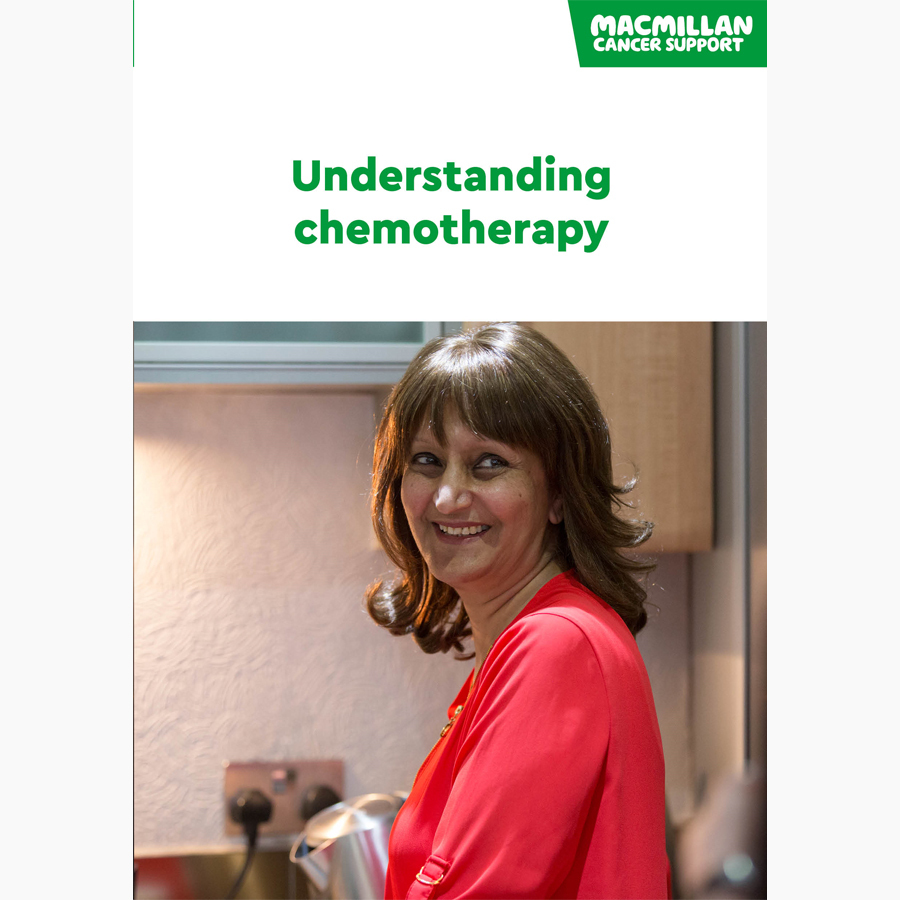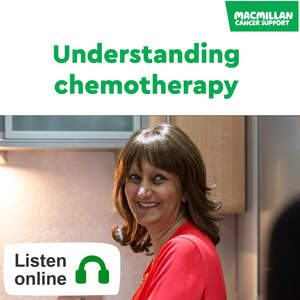Chemotherapy for head and neck cancer
What is chemotherapy?
Chemotherapy uses anti-cancer (cytotoxic) drugs to destroy cancer cells.
Your doctor and nurse will talk to you about the chemotherapy that is best for your situation. They will explain how long your treatment is likely to take. Some chemotherapy treatments for head and neck cancer involve a short stay in hospital.
Chemoradiation
If the cancer is locally advanced, you usually have chemotherapy in combination with radiotherapy. This is called chemoradiation. You may have it:
- as your main treatment
- after surgery, to reduce the risk of the cancer coming back (called adjuvant treatment).
You may have chemotherapy each week or every 3 weeks during your course of radiotherapy. Your doctor or nurse will explain this to you.
Chemotherapy before other treatment
You may have chemotherapy on its own before radiotherapy or surgery. This helps shrink the cancer and make treatment work better. This is called neo-adjuvant chemotherapy.
It may be given every 3 weeks for 1 to 3 treatments, before radiotherapy or surgery. This depends on the type of head and neck cancer and how the cancer responds to chemotherapy. You may have more chemotherapy after surgery or radiotherapy.
Chemotherapy to help control the cancer
If the cancer is more advanced, or comes back, you may have chemotherapy on its own or with a targeted therapy drug. It may help control the cancer and relieve symptoms. This can help to improve your quality of life. It is sometimes called palliative chemotherapy.
Chemotherapy drugs used for head and neck cancer
You usually have a drug called cisplatin, which may be given on its own or along with other chemotherapy drugs. Chemotherapy drugs commonly used to treat head and neck cancers are:
How chemotherapy is given
You may have chemotherapy as an outpatient, or during a short stay in hospital.
Usually the nurse gives your chemotherapy drugs into a vein (intravenously). You have some other drugs, such as capecitabine, as tablets.
Chemotherapy is usually given as several sessions of treatment, with rest periods in between. This makes up one cycle of treatment. Your cancer doctor will explain the number of cycles you need for your course of treatment.
Chemotherapy into a vein
Chemotherapy given into a vein (intravenously) can be given through:
- a cannula – a short, thin tube put into a vein in the arm or the back of the hand
- a central line – a long, thin tube put into a vein in the chest
- a PICC (peripherally inserted central venous catheter) line – a long, thin, flexible tube put into a vein in the arm and threaded through to a vein in the chest
- a portacath – an implantable line (catheter) put into a vein, with an opening (port) under the skin on the chest or arm.
Sometimes, you may have intravenous chemotherapy over a few days through a small, portable pump attached to your central line or PICC line. This allows you to go home during your treatment.
Possible side effects of chemotherapy
Chemotherapy drugs cause different side effects. These can usually be well controlled with medicines. Most side effects usually go away once treatment has finished. Your doctor or nurse will tell you about the most likely side effects and how they can be controlled or managed.
We have more information about the side effects of chemotherapy.
Booklets and resources
About our information
-
References
Below is a sample of the sources used in our head and neck cancer information. If you would like more information about the sources we use, please contact us at cancerinformationteam@macmillan.org.uk
Machiels J.-P, Leemans C. R. et al. Squamous cell carcinoma of the oral cavity, larynx, oropharynx and hypopharynx. EHNS- ESMO-ESTRO Clinical Practice Guidelines for diagnosis, treatment and follow-up. Annals of Oncology, 2020. Volume 31, Issue 11, Pages 1462-1475.
National Institute for Health and Care Excellence (NICE). Cancer of the upper aerodigestive tract: assessment and management in people aged 16 and over. NICE guideline NG36 2016 (updated 2018).
-
Reviewers
This information has been written, revised and edited by Macmillan Cancer Support’s Cancer Information Development team. It has been reviewed by expert medical and health professionals and people living with cancer. It has been approved by Senior Medical Editor, Dr Chris Alcock, Consultant Clinical Oncologist.
Our cancer information has been awarded the PIF TICK. Created by the Patient Information Forum, this quality mark shows we meet PIF’s 10 criteria for trustworthy health information.
Date reviewed
This content is currently being reviewed. New information will be coming soon.

Our cancer information meets the PIF TICK quality mark.
This means it is easy to use, up-to-date and based on the latest evidence. Learn more about how we produce our information.





